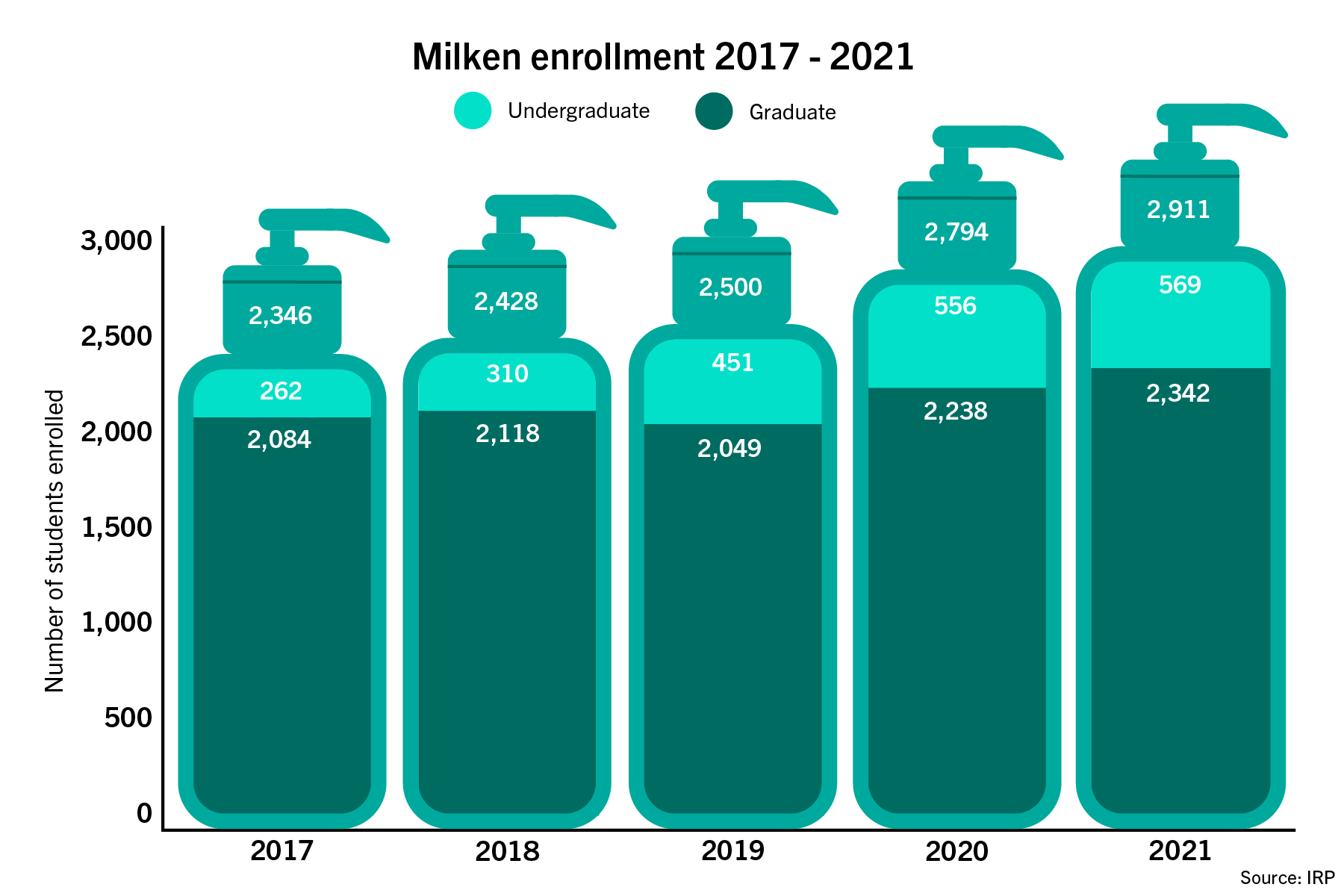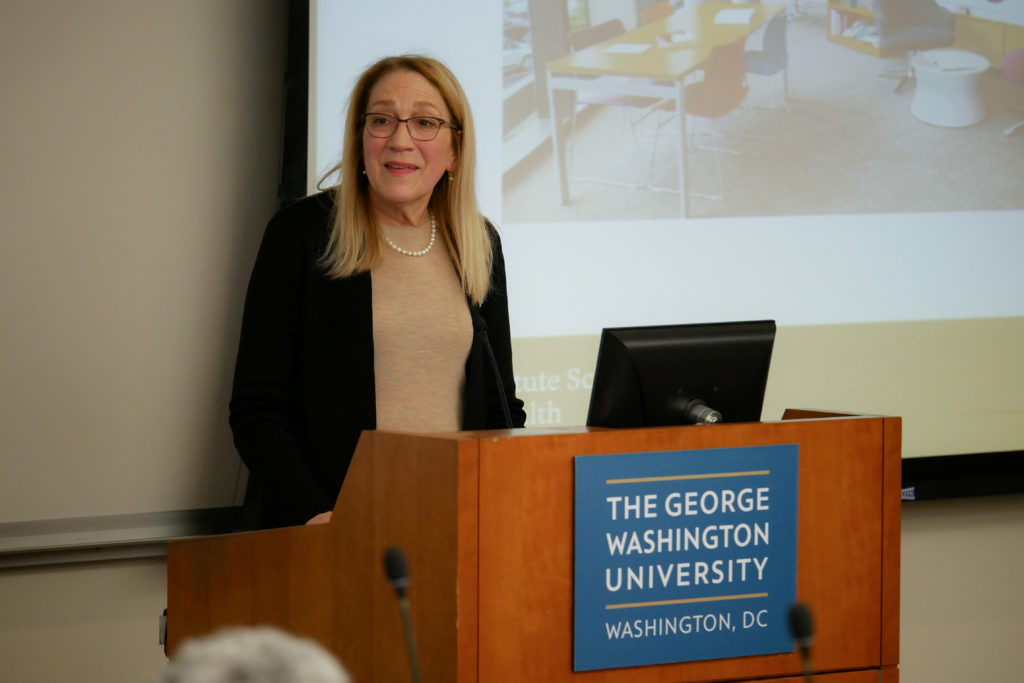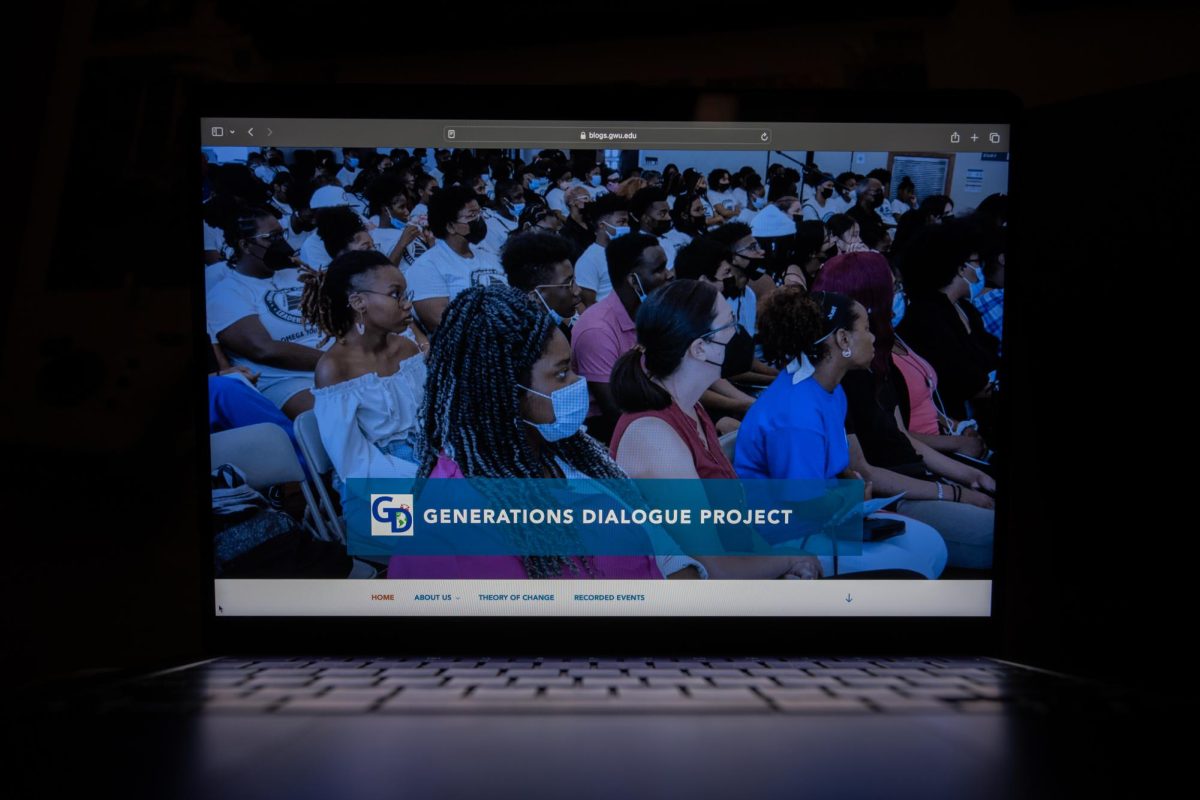Enrollment at the Milken Institute School of Public Health has continued its nine-year climb this semester amid a three-year drop in University-wide enrollment lasting through the COVID-19 pandemic.
The total enrollment in Milken has risen by more than 16 percent to nearly 3,000 students this fall since the 2019-20 academic year, according to institutional data. Experts in enrollment management at public health schools said the enrollment increase is consistent with a nationwide trend in higher education as interest in public health fields has surged because of the coronavirus pandemic.
The number of undergraduates in Milken increased by more than 26 percent while the number of graduate students increased by more than 14 percent since the 2019 to 2020 academic year, according to institutional data. Officials said total University enrollment fell 2.1 percent this academic year at a Faculty Senate meeting last month, and the remaining nine schools saw simultaneous decreases in enrollment, like the College of Professional Studies and the School of Business.
Milken spokesperson Kathleen Facklemann did not return a request for comment.
Cindy Bryce, the associate dean for enrollment at the University of Pittsburgh Graduate School of Public Health, said more students became interested in public health because the pandemic affected how the image and responsibilities of the field were perceived in local communities and in the media. She said her school observed significant increases in the enrollment rate in fall 2020 and 2021.
“It’s more than just that there was a pandemic, it’s that the pandemic played a role in educating the public about the importance of public health,” she said.
Milken adjusted its admissions process in fall 2019, reducing the GPA requirement for the public health major from 3.0 to 2.75 and allowing students to apply directly as a public health major, which helped drive undergraduate enrollment at the school.

Nicholas Anastacio | Graphics Editor
Clare Norton, the associate dean for enrollment management at the Columbia Mailman School of Public Health, said the pandemic has significantly raised the profile of public health, contributing to increased enrollment. She said community health care has become a more common discussion topic for people across the country, which has led more students to consider pursuing public health as a possible career path.
“A result of this pandemic is that there’s been a lot of talk about public health work, predominantly epidemiology and infectious disease,” she said. “As all of that has risen to prominence, it’s become part of regular news conversations and regular dinner table conversation, and I think we’ve seen people saying they should be in public health.”
She said universities have recognized the importance of more students studying public health in the face of an ongoing pandemic, and her school saw a “dramatic increase” in applications in the past two academic years, leading to their largest masters in public health class currently.
“We felt like it was a critical moment in public health and that we really needed to be educating as many of the best minds as we could possibly accommodate,” she said. “And so, we made some choices to try and be situated in a way that would allow us to be able to admit more students.”
Zachary Maggio, the associate dean of enrollment management at New York University’s School of Global Public Health, said many workers view graduate school, especially in public health, as a new career path after the pandemic triggered a mass resignation of non-essential workers.
He said the current “prominence” of community health care in the media has directly caused the surge in enrollment. Maggio said a public health degree is now seen as a viable alternative because of public figures like Anthony Fauci, the director of the National Institute of Allergy and Infectious Diseases and President Joe Biden’s chief medical adviser.
“The community of public health schools and programs is not monolithic,” he said. “It encompasses many different types of schools and programs, and I’m not confident they’re experiencing the same growth we are.”
Maggio said the growth in public health enrollment has started to plateau this year, despite its previous exponential increase. He said applications are down eight percent from last year nationwide, even though the pandemic has sparked new interest and activity in public health.
He added that more public health majors can help build a stronger health care infrastructure, which can help communities better prepare for disease outbreaks in the future.
“I hope this pandemic has been a wake up call, and people will not only see the moral imperative for doing this kind of work, but also we’ll see it fundamentally as a very practical choice because there’s a lot of jobs in the field that pay well and are very fulfilling,” Maggio said.
David Hamer, a professor of global health at Boston University’s School of Public Health, said a shortage of jobs during the pandemic response, like contact tracing and lab testing, has failed to meet the demand for public health professionals and led to increased public health subsidies. He said the growing interest in epidemiology is essential for the future coordination of disease control and public health programs at universities nationwide.
“There has been more funding shifted towards public health programs, and that’s good as long as it stays,” he said. “If we can improve surveillance and have better tracking programs, then that’ll be good for the future if we have another major outbreak or pandemic, which honestly is likely to occur in our lifetimes.”








